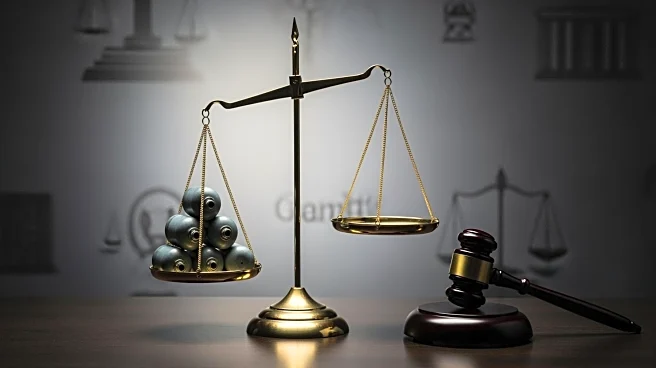What's Happening?
A federal judge in Chicago has raised concerns about the continued use of tear gas and violent tactics by immigration authorities against protesters and journalists, despite a court order restraining such actions. U.S. District Judge Sara Ellis questioned
whether immigration agents violated her previous order by deploying tear gas in the Chicago area. The confrontations have escalated as part of Operation Midway Blitz, which has resulted in over 1,500 arrests across Illinois. The judge has mandated that federal agents wear body cameras and has expressed concerns about the tactics used by Customs and Border Protection (CBP) officers. The CBP has defended its actions, stating that warnings were given before deploying tear gas, which was used to disperse crowds blocking vehicles.
Why It's Important?
The situation highlights the ongoing tensions between federal immigration enforcement and local communities, particularly in urban areas like Chicago. The use of tear gas and physical force by federal agents has sparked increased demonstrations against President Trump's policies, with community groups forming to monitor federal activities. The legal scrutiny of these enforcement tactics underscores the broader debate over immigration policy and civil rights, as well as the balance between maintaining order and respecting constitutional rights. The outcome of this legal challenge could have significant implications for how federal agencies conduct operations in densely populated areas.
What's Next?
The Department of Homeland Security (DHS) is seeking modifications to the judge's order on body-worn cameras, and further court hearings are expected. The interim head of the Chicago regional ICE field office has been ordered to appear in court, and the DHS has indicated that it may send other officials to testify. The legal proceedings will continue to examine the compliance of federal agents with court orders and the appropriateness of their tactics. The situation may lead to further protests and legal challenges as community groups and civil rights advocates push back against perceived government overreach.

















